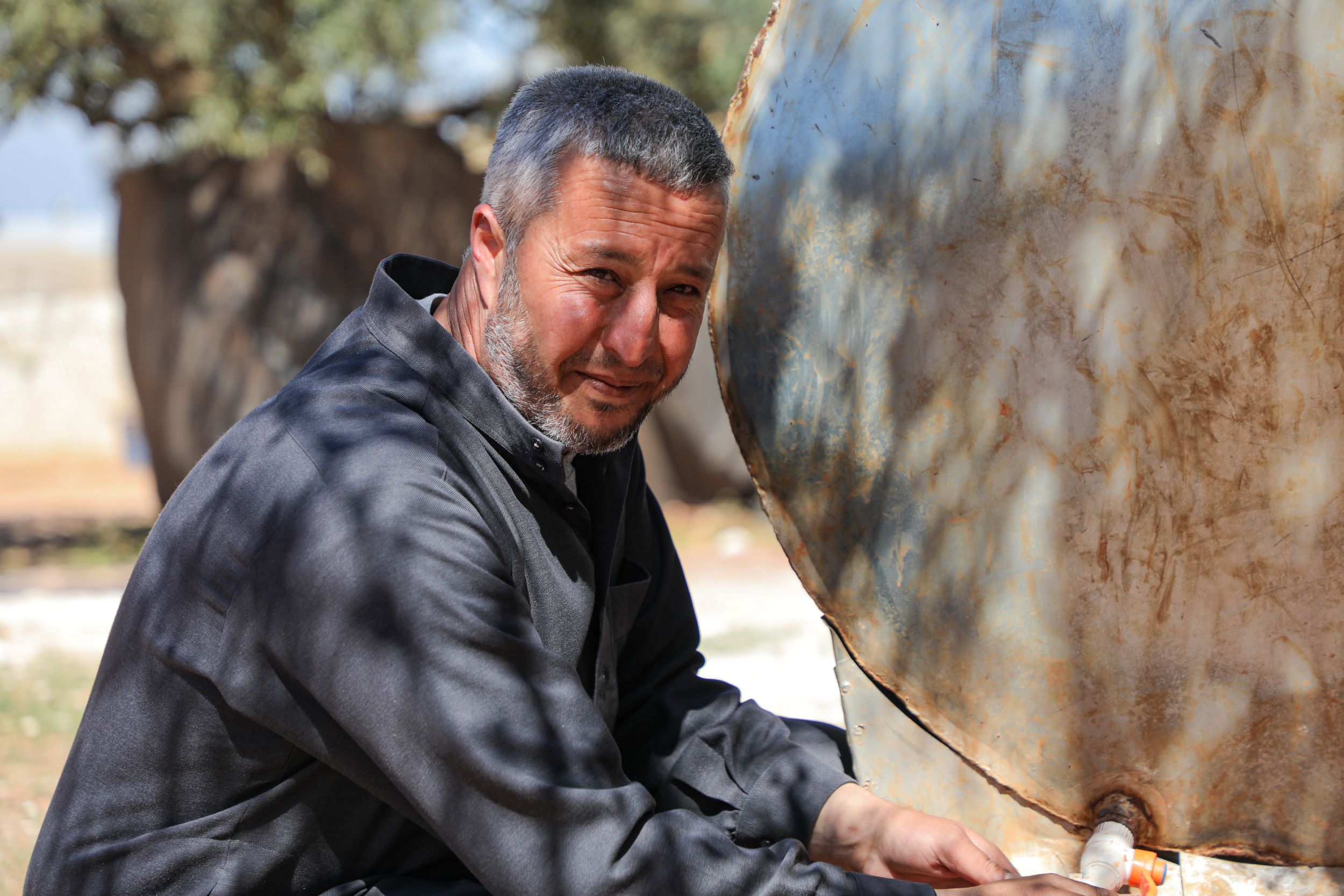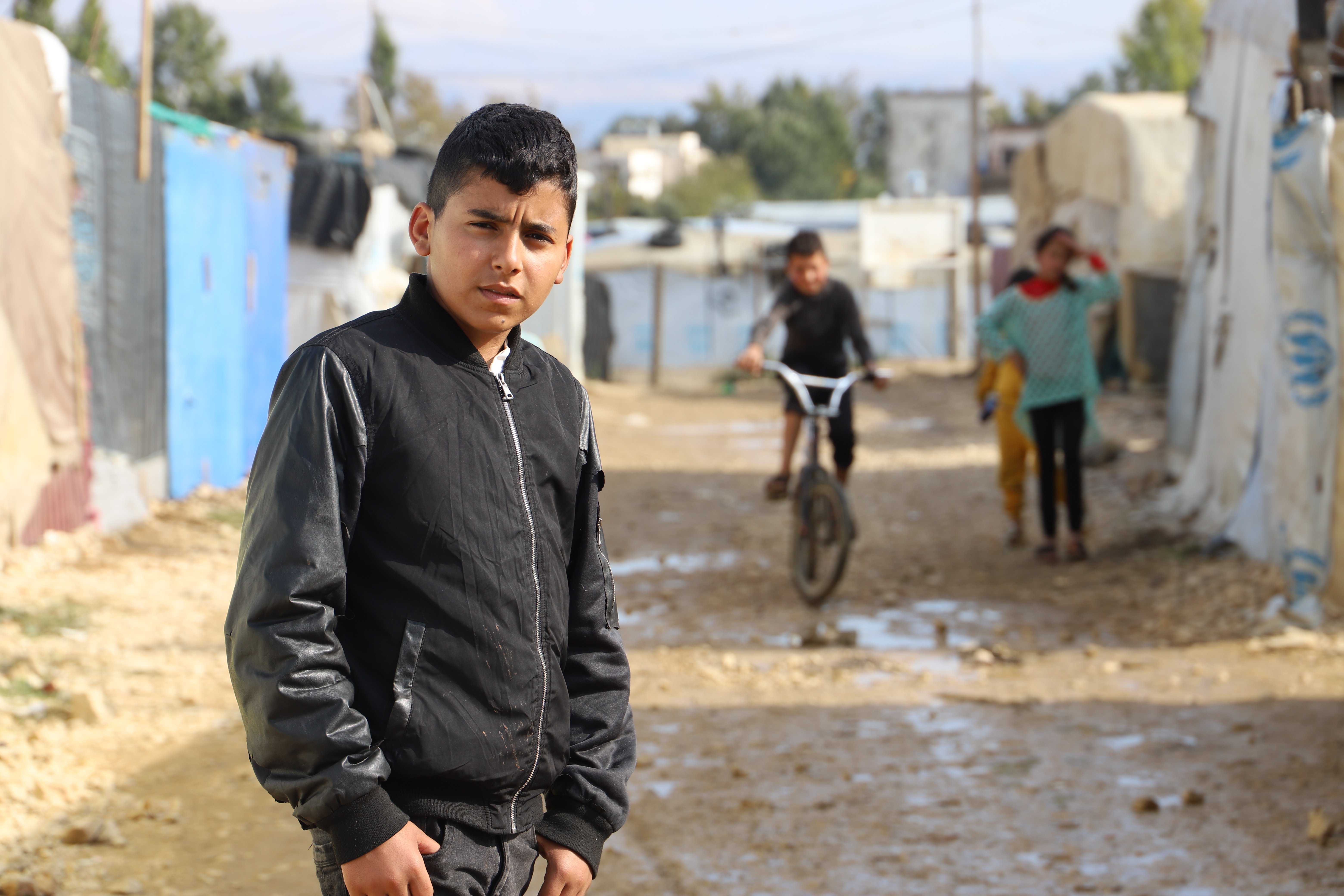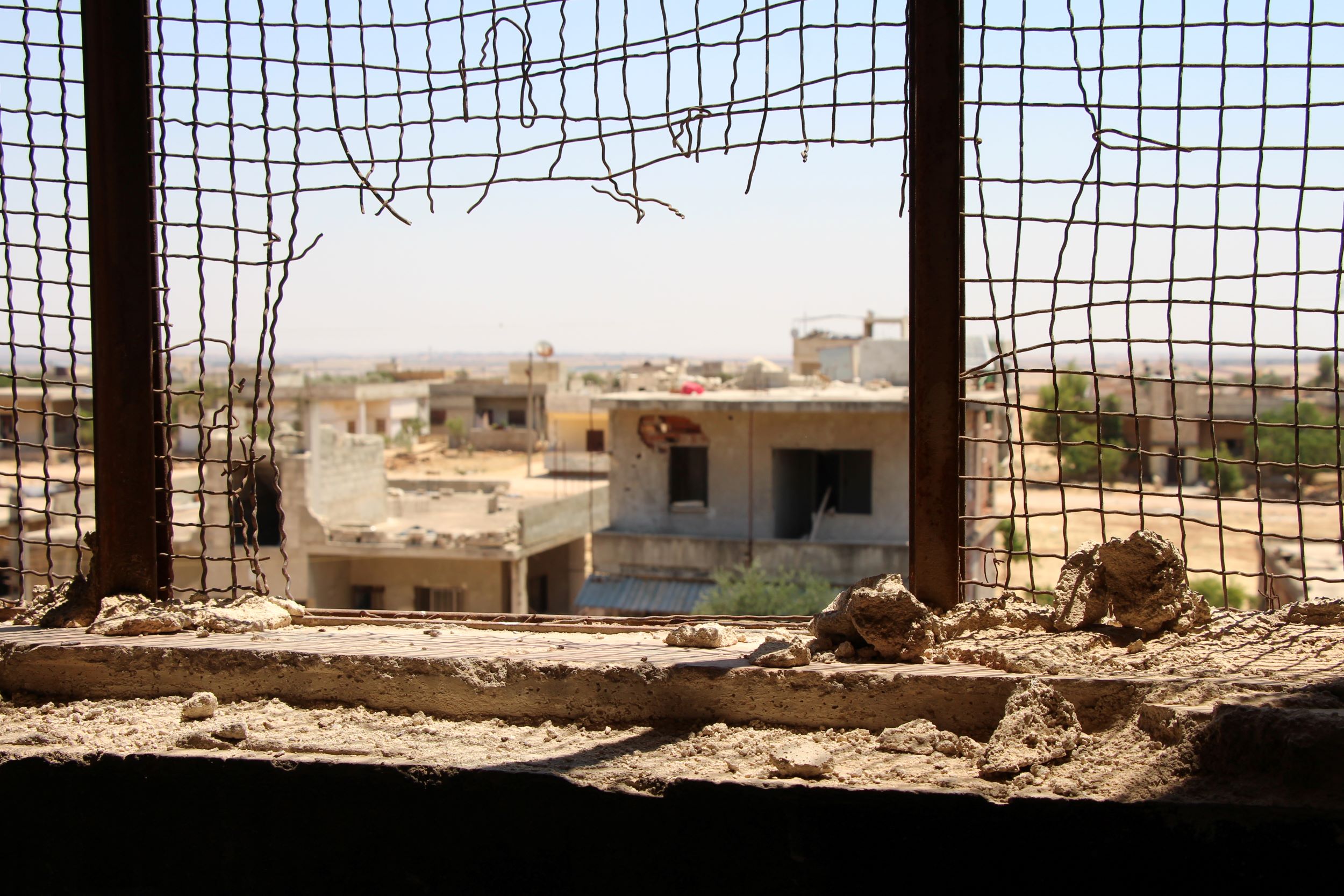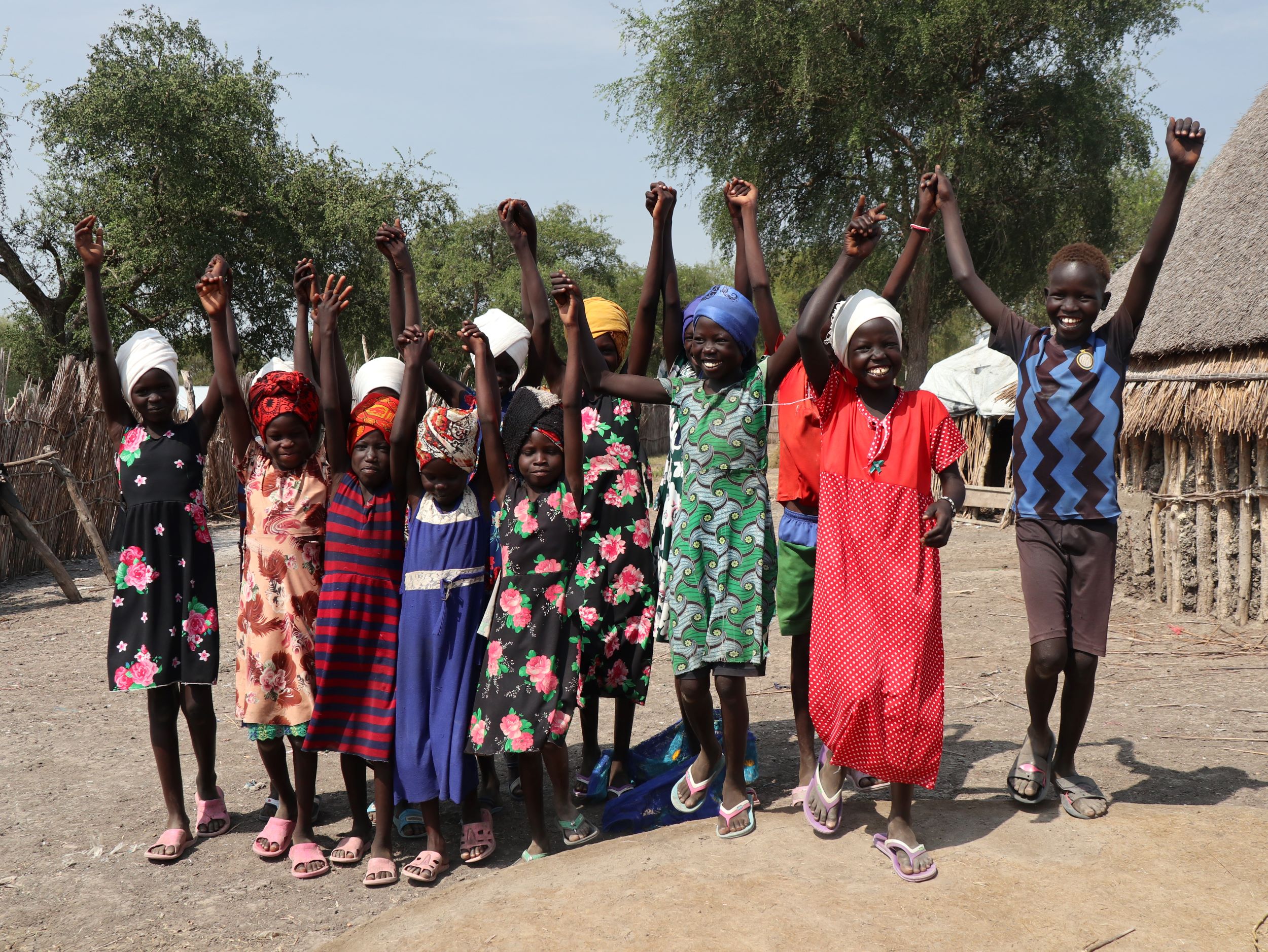
Searching for peace in Syria
Samer spent five years looking for a safe home. Then the earthquakes struck.
Survival mode
Imagine being forced from home by conflict, having to spend years searching for a safe place to raise your family. After many moves, you finally find a home. The fear of bombs no longer fills you with terror. You can start to think about the future.
Then an earthquake strikes.
This is what happened to Samer. For the past five years, he and his family of five have moved from one town to the next. They currently live just 37 miles from their home, but they can’t go back – it isn’t safe.
“We kept searching for something we call peace,” Samer shares with World Vision staff. That’s all he and his family want.
Samer and his family now live in a village to the north of their home town. A town that has been fought over many times during Syria’s 12-year conflict, falling into the hands of one militia group after another.
Caught in the middle
The first time they were forced from home was when the family found themselves caught in the middle of fighting. “Our house was only 300 metres away from everything,” says Samer. “The children were affected by the sound of shelling.”
If they stayed, it would only have been a matter of time before someone was killed – perhaps one of the children.
The family headed south. “We kept moving from one place to another. All we wanted was to feel temporarily safe and [to have] emotional stability,” he says. But that wasn’t an option. Indiscriminate bombings made it hard for them to settle anywhere.
They turned around and headed north once more. Yet even then, it felt impossible to escape the conflict. One night, they were awoken by the sound of bombs falling.
“I’ll leave it to your imagination,” says Samer of that night. “A person trying to sleep after all [the] troubles wakes up to that sound. How would they feel? Even if they survive, it still affects their mental health.”
Back to the start
Samer wanted to go back home, so the family packed up and travelled back to where they started.
“During those six months, we felt relief,” he says. But once again, the feeling vanished. Planes began swooping over, bombing civilians.
“We have witnessed everything,” Samer says. “How things escalated from shelling to bombardments. And it’s in our nature to feel scared.”
This time they left their town for good. Not knowing where to go didn’t matter anymore. “Those who are displaced with nothing don’t care about where they stay. It doesn’t matter if it’s close to home or not. At the end of the day, they left home,” says Samer.
The family tried a new town but when a close family member died they found it painful to remain – the memories too raw. “Death is very heavy and it impacts us,” Samer shares.
Remaining in the Northwest region, they settled in another town, where they have remained for almost two and a half years.
Away from the noise of fighting, the family experienced stability for the first time in years. Samer even found time for a hobby – fishing in a nearby river. This made him feel productive.
“I mean, I am not as good as people here,” he says, “but I feel accomplished even if I only have a couple of fish.”
READ MORE: Refugee children need your support

Earthquakes
On 6 February, Samer and his family were awoken by a different, yet equally frightening, noise to the bombs. Thankfully all of the family survived the two earthquakes that shook parts of Turkey (now known as Türkiye) and Syria.
“My house wasn’t properly built,” says Samer, “so it was severely affected. But we managed to get out.
“We stayed outside in fear of another aftershock. We later felt very cold so we had to go inside, but kept the door open to be able to escape fast if needed.
“It felt like doomsday. People were screaming, it was raining, and it was difficult to know if children were shaking from cold or fear.”
The family left their home as it was too unsafe to stay. Moving to a temporary shelter, they were just grateful to be alive.
Water and World Vision
Now living in a displacement camp, Samer is grateful for the provision of safe drinking water from World Vision’s partners. Syrians have experienced water scarcity for the past decade due to the conflict as well as drought. This has led people to use untrustworthy water sources and it perhaps explains the alarming rise in suspected cholera cases.
According to the World Health Organisation, there were 92,649 suspected cases of cholera between August 2022 and February 2023 in Syria. Of these, more than 50% were in Northwestern governates, where most of Syria’s internally displaced live.
“I have heard about cholera, of course,” says Samer. “It is vastly spreading across the Northwest. It is concerning.”
He understands that he needs to keep his family safe. “When I bring vegetables home, I use the water to thoroughly clean them to avoid infection,” he says.
READ MORE: Why clean water matters
Life for refugees and displaced people
Sadly, the experiences of Samer and his family are all too common. Refugees and forcibly displaced people face challenges that are beyond what most of us can imagine. They flee their homes, leaving everything behind, often just to survive. Many are forced to live in overcrowded camps within their own country, where conditions are harsh and children are at high risk of violence, neglect and exploitation. Childhoods are lost, along with the hopes and dreams of these vulnerable children.
World Vision is working to support some of the 36 million children worldwide who have been forced from home because of conflict or disaster. Our work includes providing essentials such as food, shelter, water and sanitation, as well as mental health support and the provision of child safe zones.
Safe Zones
In places defined by disaster and devastation, children are highly vulnerable to violence, neglect and exploitation. All they want is home – safety, stability, friendship.
This is why World Vision runs child Safe Zones. These are havens in the hardest places; places to play, learn and feel safe. Our trained staff help children express themselves through play and art. Parents have peace of mind knowing their precious family is safe while they look for work or collect essential supplies.
Safe Zones provide a sense of stability, care and belonging in the middle of chaos – a place to be a child.
They’re made possible by the generous donations of World Vision supporters.




